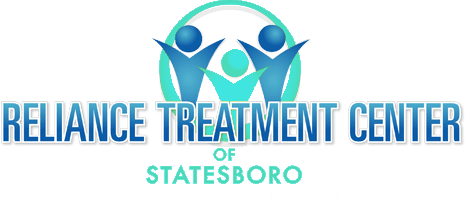Supporting a family member with opioid dependence can be an emotional and overwhelming journey. It’s important to remember that their addiction doesn’t define your loved one—opioid dependence is a medical condition that requires care, compassion, and structured support.
If you suspect someone close to you is struggling, your presence and understanding can make a profound difference. In this article, we’ll explore the signs of opioid dependence, how you can help, and treatment options that help promote recovery.
Signs of Opioid Dependence
Recognizing the symptoms of opioid dependence is the first step. Opioid addiction affects not just the body but also behavior, emotions, and relationships. Here are some key signs:
- Physical symptoms: Drowsiness, pinpoint pupils, slowed breathing, or sudden weight loss
- Behavioral changes: Neglecting responsibilities at work, school, or home; loss of interest in hobbies
- Emotional instability: Mood swings, irritability, depression, or anxiety
- Financial trouble: Unexplained borrowing or missing money
- Withdrawal symptoms: Nausea, sweating, muscle pain, insomnia, or cravings when not using
Opioid dependence can look different for everyone, so it’s crucial to stay observant and maintain open communication without judgment.
How to Help a Loved One
Navigating opioid addiction within the family requires a delicate balance of empathy and boundaries. Here are some actionable ways you can offer meaningful support:
- Educate YourselfLearn about opioid addiction to better understand what your loved one is experiencing. Addiction is not a moral failing but a chronic condition, often involving physical and psychological dependencies.
- Start the Conversation with CompassionExpress your concern in a non-confrontational way. Avoid shaming or blaming language, as this can push them further away. Use phrases like, “I’m worried about you and want to help,” instead of, “Why can’t you stop?”
- Encourage Professional TreatmentGently guide them toward seeking professional help. Offer to assist with research, attend appointments, or explore treatment options together. They may feel more supported knowing they’re not alone in this journey.
- Set Boundaries for Your Well-beingWhile it’s important to support your loved one, protecting your mental health is equally essential. Set boundaries to prevent emotional burnout—it’s okay to say no and seek help for yourself too.
- Consider Family CounselingFamily therapy can help address any emotional scars and rebuild trust within the family unit. Healing together makes a significant impact on long-term recovery outcomes.
Treatment Options for Opioid Dependence
There are various effective treatments for opioid dependence, each designed to meet different needs. A combination of medication and counseling provides the best chance for long-term recovery.
Medication-Assisted Treatment (MAT)
MAT uses medications such as Methadone, Buprenorphine, and Subutex to mitigate cravings and the effects of withdrawal. These medications allow individuals to stabilize without experiencing the highs and lows of opioid use.
- Methadone: A long-acting opioid that helps block cravings and withdrawal symptoms.
- Buprenorphine (Suboxone): A partial opioid agonist that reduces cravings and limits the euphoric effects of other opioids.
- Subutex: A version of buprenorphine without naloxone, often used during the early stages of treatment.
These medications, when prescribed and monitored by healthcare professionals, provide a safer alternative and create a foundation for recovery.
Counseling Services
Behavioral therapies help address the emotional and psychological aspects of addiction.
- Individual Counseling: Focuses on personal struggles, identifying triggers, and building coping strategies.
- Group Therapy: Offers peer support by connecting individuals with others going through similar experiences.
- Family Therapy: Helps families rebuild trust and create healthier dynamics. Involving family members can improve the chances of sustained recovery.
Opioid Dependence Treatment in Statesboro
Helping a family member with opioid dependence isn’t easy, but your support can make a significant difference. Recovery takes time, effort, and patience, both for your loved one and for you. Celebrate small victories along the way, and don’t hesitate to seek professional help for yourself if you need it.
Remember, you’re not alone in this journey—there are resources available, from counseling to medication-assisted treatments, that can provide a lifeline. The path to recovery may be challenging, but it’s possible with empathy, support, and professional care.
If you or someone you love is struggling with opioid addiction, reach out to Reliance Treatment Center of Statesboro at (912) 489-7827. Help is available—and hope is always within reach.
Sources:
https://www.webmd.com/mental-health/addiction/opioid-addiction-family-member
https://familydoctor.org/coping-with-a-family-members-opioid-addiction/
https://www.hopkinsmedicine.org/health/conditions-and-diseases/opioid-use-disorder

